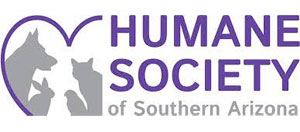SARRE founder and director Cressi Brown started the organization with the goal of making it as fun, informative, and educational as possible. Since opening to the public in 2018, securing 501c3 nonprofit status in 2019, and becoming a nationwide phenomenon, it is safe to say that SARRE has met and surpassed that goal. That hasn’t stopped Cressi and around twenty other volunteers from continuing to dream big and widen this safety net for reptiles and amphibians all over the country.
Cressi Brown has had a lifelong love for all things scaly. She recalls begging for a pet alligator at the age of 4 and eventually settling for a caiman a few years later. As an adult, realizing the plight of so many reptiles taken on by people who underestimate their eventual size, or how specialized their needs are, Cressi knew she had to take up for them.
Currently, SARRE houses around 100 reptiles and amphibians, including fosters and community ambassadors, and over the course of their operation, they have rehomed 800-900 of them. The group does not, however, take the housing and rehoming of these animals lightly. The needs of various captive reptiles and amphibians can look as diverse as they do, and not everyone has the capacity to give them what they need. For this reason, SARRE works carefully with potential adopters, asking for pictures of habitats and enclosures before finalizing any adoption. Impulse adoptions are a big problem in any rescue, so education is key as well.
Reptiles and amphibians can be incredibly fragile. Because they are often ultra-specialized to their specific native habits, some fail to thrive at all in captivity. According to Cressi, chameleons fall into this category. Heartbreakingly, 90% of these easily stressed reptiles don’t live past six months old outside of their native environments. The failure of humans to properly care for these species is not necessarily from a place of ill-will or even negligence, but rather a lack of education. This is why the educational aspect of SARRE is so important; they offer regular public presentations, as well as bookings at private events, schools, etc., that help to demystify and destigmatize these beautiful animals.
The education and rescue aspects of SARRE are incredibly necessary, not just for the good of these domesticated reptiles, but for the environments they are often unleashed upon when their keepers no longer have the ability or inclination to care for them. This often results in a negative effect on native reptile species as well, as in the case of the Sulcata tortoise here in Southern Arizona. The overbreeding of this Saharan species means many are escaping or being dumped in the Sonoran desert where they compete with our native desert tortoises for food and habitat. It comes as no surprise that these tortoises, who can grow to massive sizes, well over 100 pounds, are some of the most common animals to come through SARRE, who has placed them in six states in the last two months alone. Red Eared slider turtles also come into the rescue in droves and are considered the number one invasive reptile species in the country. SARRE is partnered with several other agencies, such as the Phoenix Herpetological Society, Arizona Game and Fish, and the US Border Patrol, as well as working with the Florida Wildlife Commission Amnesty Program. Florida has a serious invasive reptile problem, most notably with pythons and iguanas, and has recently banned 17 domestic species in response. SARRE receives regular shipments of these animals in an attempt to lift some of the burden.
Southern Arizona Reptile Rescue has a wide-reaching impact and continues to grow its scope, but they can still use all the helping hands they can get. Operating predominantly out of volunteer households, the group has no dedicated site as of yet. Discouraged after a potential property in Picture Rocks fell through at the last minute, Cressi continues to search for the perfect forever home for the organization. In the meantime, they continue their good work. Cressi recalls a favorite example of SARRE’s public impact. One day, while setting up at a local senior center, she was approached by a tiny wizened woman who informed Cressi that she was 104 years old and did not like reptiles, but had nothing better to do that day. By the end of the presentation, the woman was happily holding a snake, and begging her friends to take photos. “This is nothing like what I expected.” She told Cressi. This just shows that it’s never too late in life to learn tolerance and acceptance.
For more information on this wonderful organization, or volunteer, donation, foster, or adoption opportunities, go to Cressi.ueniweb.com














